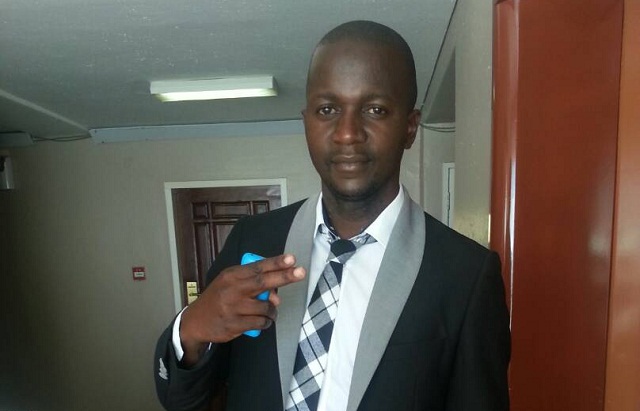Turning challenges into opportunities
Danisa Masuku
“We’re in talks with our partners who are running businesses in countries such as Botswana, South Africa, Namibia and Britain. We’re confident that we’ll broker a good deal which will enable the group to export their products. That way, they can realise better income from their hard work.”
The challenges facing the country have given birth to a new breed of entrepreneurs who are turning challenges into opportunities.
One such group of entrepreneurs is a 12-member group comprising men and women living positively with HIV.
Under the Nehemiah Aids Relief project, this group has since set up a workshop at Themba Centre in Cowdray Park suburb, Bulawayo where they make pots from aluminium.
Members of the group, led by Mr Trevor Dube, are realising enough to fend for their families.
Every day Mr Dube and his group take to the streets in search of scrap metal with little or no idea of what they might find from piles of rubble.
Ngozi Mine, a dump site near Cowdray Park suburb is a gold mine to them as they often find scap metal in abundance.
“We start working at 8AM. We meet here (at the workshop) and pray for God’s guidance after which we take to the streets and collect scrap metal in the form of cans, kitchen utensils and other such objects,” said Mr Dube.
Asked how the group deals with Bulawayo City Council (BCC) authorities as they go about collecting scrap metal, Mr Dube said they did not experience any challenges with authorities.
“When we approached the council, they welcomed the idea and gave us the green light as they deemed our work as a way of cleaning the streets,” he said.
Mr Dube continued: “We usually get the scrap aluminium from Ngozi Mine where we compete with other groups also scavenging for scrap metal. To beat the competition, we at times pay the other people to do the job for us.”
He said a 10 kg sack of scrap metal is sold for $1 and on average they can buy up to ten sacks a day.
After collection, the cans are washed and smelted to make pots of different sizes. Mr Dube said on average, 10 pots are made per day.
The prices of pots range from $5 to $99 depending on the size.
Mr Dube said their products are sold at Renkini bus terminus and in rural areas where at times they do barter trading.
“When we’re in the rural areas, we exchange a size 30 pot for two or three goats or two small size pots for a goat or maize. At times, we trade our pots at mines where business is brisk. We’ve actually made a fortune out of barter trading,” he said.
Since the project’s inception two years ago, Mr Dube said he has been able to cater for his children’s upkeep.
“I make at least $300 per month but there’re some who make more. From the cash, I’m able to buy my medication, food, pay school fees for my three children as well as pay my rent and utility bills. This business is my family’s only source of income,” he said.
Another beneficiary of the project, Ms Nomathemba Moyo, gave a moving testimony of the project.
“Before I embarked on this project, I led a miserable life as I carried the burden of fending for my children single handedly. At times, we would sleep on empty stomachs. But now the quality of our lives has improved as I make about $330 per month,” said Ms Moyo.
Nehemiah Aids Relief project empowered the group with investment knowledge and selling skills.
Ms Moyo said she is saving and wants to diversify her business.
“I have saved $600 and by September, I’d have saved about $1 000. I’ll be able to start a flea market. That doesn’t mean I’ll forgo the aluminum pot making business but I’ll be juggling the two so as to earn more money,” she said.
Nehemiah Aids Relief project communications director Mr Shepherd Nyambayo said plans were underway to assist the group export its products.
“We’re in talks with our partners who are running businesses in countries such as Botswana, South Africa, Namibia and Britain. We’re confident that we’ll broker a good deal which will enable the group to export their products. That way, they can realise better income from their hard work,” said Mr Nyambayo.
He said the concept would be introduced to other support groups for people living with HIV that fall under their auspices.
“We have support groups in Mzilikazi, Nkulumane, Sizinda, Trenance and Lobengula suburbs which running different projects. After seeing the success of the pot making project, we saw it prudent to propose that they export their products,” said Mr Nyambayo.
Besides being a source of income, the scrap metal business is also beneficial to the environment. Waste pickers help recycle metals which are usually found strewn on the streets.
The dumping of metal has a a very huge negative impact on the environment so recycling metals helps to clean the environment.
“Mineral ore deposits from which metals are made are non-renewable resources that will run out fast if exploited at a high rate so the importance of recycling metals cannot be over emphasised,” said Mr Douglas Mawire, country director for Environment Africa.
He said recycling of scrap metal goes a long way towards significantly cutting on pollution levels as waste products are reused rather than being thrown away.
According to experts, recycling of aluminum requires less than five percent of the energy and emits only five percent of the carbon dioxide when compared with primary production.
The metal can be recycled indefinitely because reprocessing does not damage its structure. Aluminum is also the most cost-effective material to recycle.









Comments